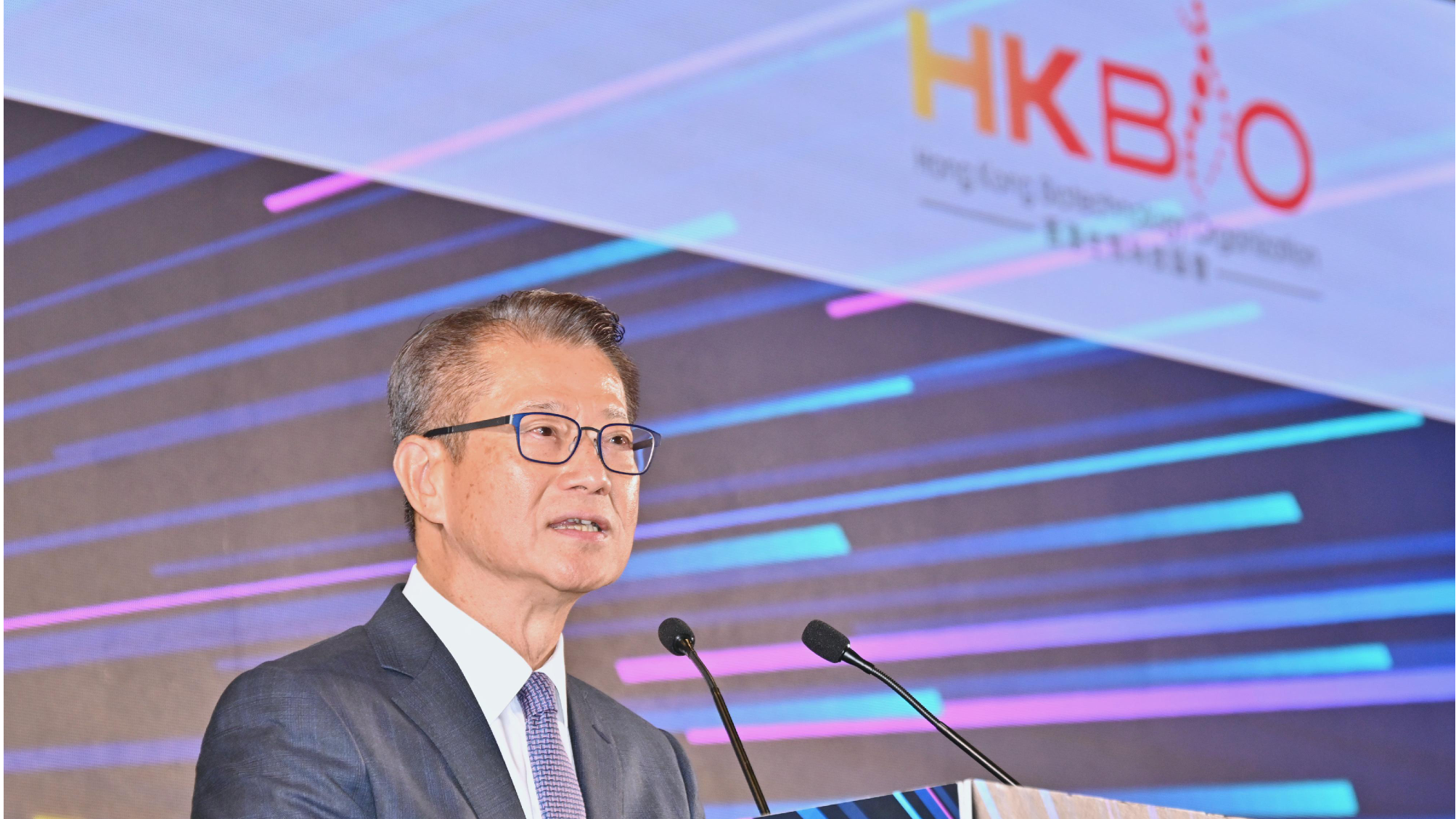
Hong Kong can make a more positive contribution to channeling global capital into impact investing through building a robust impact investment ecosystem, creating internationally-trusted standards and rules to promote investment, and enhancing product innovation, Financial Secretary Paul Chan Mo-po said in his Sunday blog.
“Last year, assets under management of impact investment stood at some $1.6 trillion, and AUM are projected to reach $6 trillion by 2031. As an international finance center, Hong Kong can make positive contributions in three areas to connect impact capital with high-quality and socially significant projects effectively,” he said.
First, the special administrative region must foster collaboration among diverse stakeholders of regional and international impact investment networks to promote cross-sector collaboration for maximizing effectiveness and impact. The iLink online platform launched by the Hong Kong Academy for Wealth Legacy brings together nearly 50 family offices and world-renowned strategic partners to help them promote philanthropic investment.
The SAR should introduce globally-trusted standards and rules to promote investment. In green and sustainable finance, for instance, setting internationally-recognized standards for project classification, financial reporting and disclosure can boost investor confidence in target projects and reduce cross-sector and cross-regional communication costs.
ALSO READ: Hong Kong sees 19% rise in family offices in first 5 months of 2025
Chan said the Hong Kong Monetary Authority has launched the Phase 2A prototype of the Hong Kong Taxonomy for Sustainable Finance last week, aimed at covering “transformation activities”, such as assisting high-polluting industries in decarbonizing. This will allow more capital to be directed to relevant projects effectively, addressing the practical needs of many developing regions.
The finance chief said promoting more product innovation is also paramount as Hong Kong has nurtured a number of technology startups with their cutting-edge innovative products and solutions in green transformation, health, financial services and education that can help drive more equitable and sustainable development regionally and globally, and provide investors with promising investment projects. He also said Hong Kong must provide innovative products such as catastrophe bonds and infrastructure securitization to meet the development needs of different countries and regions.
Chan noted that the HKMA, through the Ensemble Sandbox project, is exploring how tokenization can improve the issuance and trading of carbon credits to enhance the liquidity and depth of the carbon market.
The second Hong Kong Green Week was held last week, with over 40 diverse events that brought together 65 local and international public and private organizations, with more than 14,500 participants. The discussions centered on blended finance which aims to channel more market capital into relevant projects by integrating with public sector guarantees or support.
READ MORE: Hong Kong secures HK$50b investment from strategic enterprises
One of the highlights of this year’s Hong Kong Green Week was the Asian Venture Philanthropy Network Global Conference 2025. It was the first time the conference was held in the SAR in six years, attracting over 1,500 global leaders in philanthropy, impact investing, and sustainable finance.
Chan said the Asia-Pacific region continues to increase investments in sustainable development. Last year, estimated investment in the region’s energy transition exceeded $1 trillion for the first time, accounting for about half of global investments and doubling that of the Americas.
“The Chinese mainland is a key contributor and innovator in the global green transition. Besides being committed to achieving the ‘30·60’ decarbonization goal (of hitting peak emissions by 2030 and achieving carbon neutrality by 2060), it accounts for nearly 40 percent of global energy transition investment. The country is also leading in technologies and vast production capacity in new energy sectors such as lithium batteries, photovoltaic panels, and electric vehicles which are a powerful support for the global green transition,” he added.
According to United Nations estimates, emerging markets and developing countries beyond China would need nearly $2.4 trillion annually by 2030 to achieve climate goals, while current investment is only a quarter of that amount.
“Faced with a global funding gap of trillions of dollars, no country or region can fully fund it through governments and philanthropies alone. Private market capital is undoubtedly needed, which is one of the reasons why impact investing has gained increasing global attention in recent years,” Chan said.


